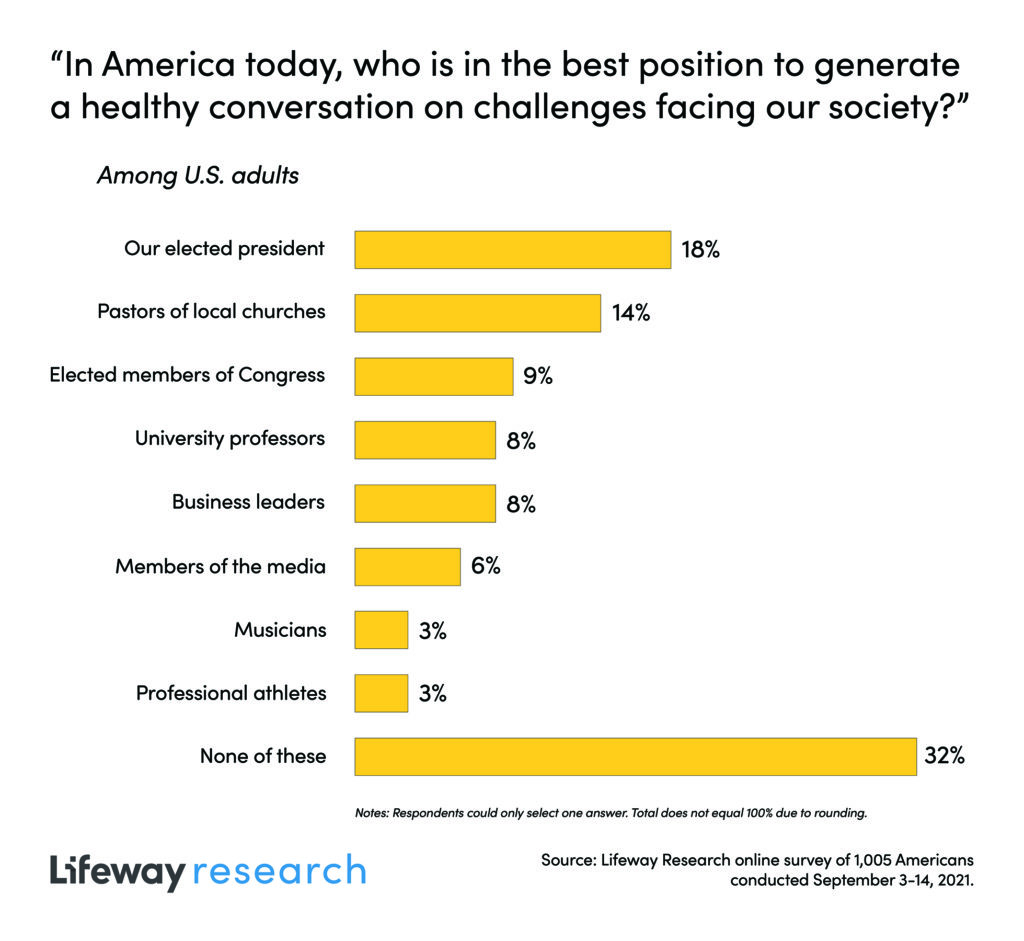Although Americans need to have productive conversations regarding challenges in our society, there is no consensus on who is in the best position to generate healthy conversations around these issues.
According to a study from Lifeway Research, fewer than 1 in 5 (18%) Americans say their elected president is in the best position to generate healthy conversations on challenges facing society. And 14% believe local church pastors are.
“A beautiful thing in America is that anyone can seek to lead productive conversations about problems in our society,” said Scott McConnell, executive director of Lifeway Research. “Sadly, very few Americans agree anyone is well positioned to do so.”
Fewer than 1 in 10 say elected members of Congress (9%), business leaders (8%), professors at universities (8%) or members of the media (6%) are most positively positioned to lead Americans in having healthy conversations about challenges in society.
Even though professional sports players and musicians often receive attention for public statements they make about issues Americans are facing, few Americans view athletes (3%) and musicians (3%) as thought leaders.

Nearly 1 in 3 Americans (32%) say none of the roles considered in this study are best positioned to lead healthy conversations on challenges in America.
Opinions Have Shifted Slightly
Compared to a 2016 study conducted by Lifeway Research in September and October leading up to a major election, fewer Americans today say the president is in the best position to generate healthy conversations on challenges facing society (18% v. 23%). However, compared to the previous study, more Americans say elected members of Congress (9% v. 6%), professional sports players (3% v. 1%) and musicians (3% v. <1%).
And today, compared to 2016, there are a similar number of Americans who are looking to local church pastors (14% v. 11%), university professors (8% v. 10%), members of the media (6% v. 8%) or business leaders (8% v. 7%) to lead healthy societal conversations.
“Anticipation of a new president in 2016 likely led to more people hoping the elected president could lead healthy conversations,” McConnell said. “Midway through the next president’s first term, hopes for that office have faded with even less agreement on who could start or moderate needed discourse.”

